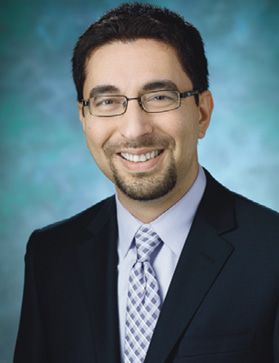State of Limbo
A definitive MS diagnosis can take time—and patience.

Searching for Answers
A Waiting Period

Pinpointing MS
A Second and Third Opinion

Moving Forward
Complex Considerations
Underlying Conditions
More Follow-ups

Staying Strong
Volk isn’t so concerned with a diagnosis. She just wants to feel better. “I don’t care if it’s MS or not. I really don’t,” she says. “I don’t care if there’s a name to it. I just want to be able to sleep at night.” The uncertainty touches her life beyond the sleepless nights, the pain and the medical tests. “I’m a really strong person,” Volk says, “so I don’t think anybody else gets it.” At first, people understood she was sick, but once she discovered what was wrong, Volk figured she’d be able to fix it, or at least explain to friends and family why she couldn’t do something.“In the beginning, it was different, but it’s been so long,” Volk says of her 12-year medical limbo. “I think I’ve lost friends over it. They expect me to do things, and when time after time I couldn’t, they stopped talking to me. I wish they understood.”Volk is still seeking answers.“Before I had this, I worked full time, taught at least two classes and was getting a PhD,” she says. “I’m not somebody who’s just going to sit around and feel sorry for myself.”Volk now teaches as an adjunct professor at Towson University and sits through whole classes if necessary. “I need it for me,” she says. “For my brain. I love to teach.” Continuing to do something for herself, not just for her illness, helps her remain grounded.Volk remains diligent with her doctors, seeking treatment for her symptoms as best she can. For years, she had counseling, as well, but the cost grew to be prohibitive. Still, she carries on.“If somebody watched how I get through the day, they would not believe it,” Volk says. “I lie down a lot, but then I gather my energy, and then I get up and do what I have to do.”










